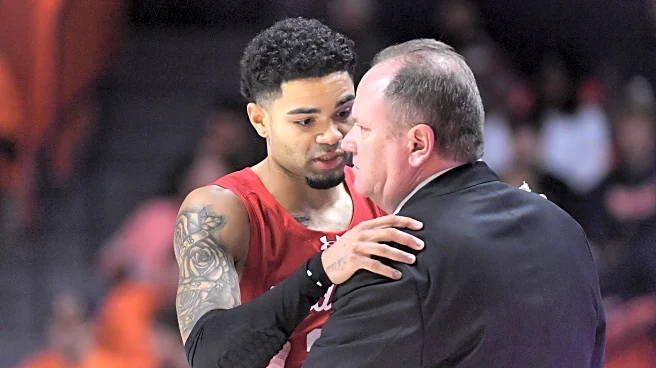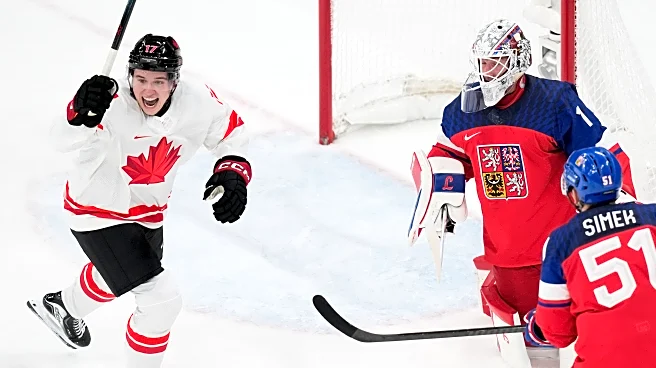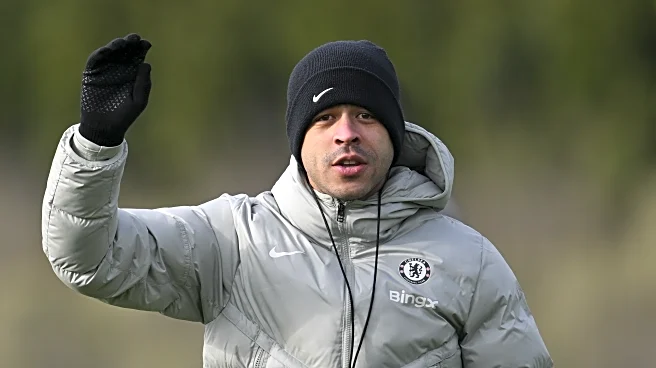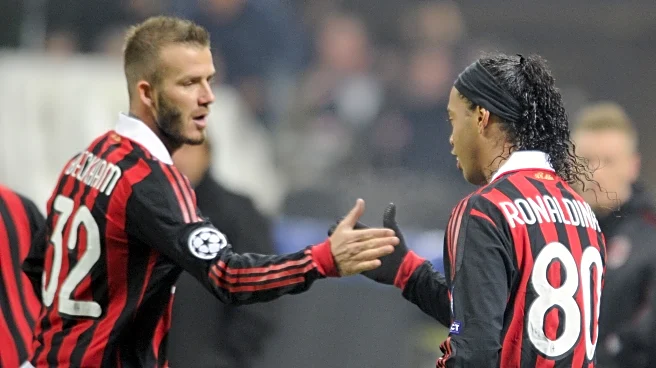What's Happening?
Kyle Hendricks, a prominent pitcher in Major League Baseball, announced his retirement after 12 seasons. Hendricks is best known for his pivotal role in the Chicago Cubs' 2016 World Series victory, which marked the team's first championship since 1908.
Throughout his career, Hendricks was celebrated for his strategic pitching style, earning the nickname 'The Professor' due to his Dartmouth education and methodical approach to the game. His career highlights include leading the league with a 2.13 ERA in 2016 and delivering standout performances in the postseason, notably against the Los Angeles Dodgers in the National League Championship Series. Hendricks spent 11 seasons with the Cubs before joining the Los Angeles Angels for his final season.
Why It's Important?
Hendricks' retirement marks the end of an era for the Chicago Cubs, as he was a key figure in their historic 2016 World Series win. His departure may impact the team's pitching strategy and fan engagement, given his popularity and consistent performance. The Cubs will need to fill the void left by Hendricks, who was known for his reliability and leadership on the mound. His retirement also highlights the challenges teams face in maintaining a competitive roster as veteran players exit the league. For the Angels, Hendricks' retirement concludes a brief tenure that did not match his previous success with the Cubs.
What's Next?
The Chicago Cubs will likely focus on developing or acquiring new pitching talent to replace Hendricks' role in their rotation. This transition may involve scouting for promising young pitchers or negotiating trades to bolster their lineup. The team will also aim to maintain fan engagement and morale, leveraging Hendricks' legacy to inspire future players. Meanwhile, Hendricks may explore opportunities outside of playing, such as coaching or sports analysis, given his deep understanding of the game.
Beyond the Headlines
Hendricks' retirement underscores the broader trend of MLB teams navigating the balance between veteran experience and emerging talent. His career serves as a testament to the impact of strategic pitching and the importance of adaptability in professional sports. As teams adjust to his absence, the focus may shift towards innovative training methods and analytics to enhance player performance and team dynamics.
















